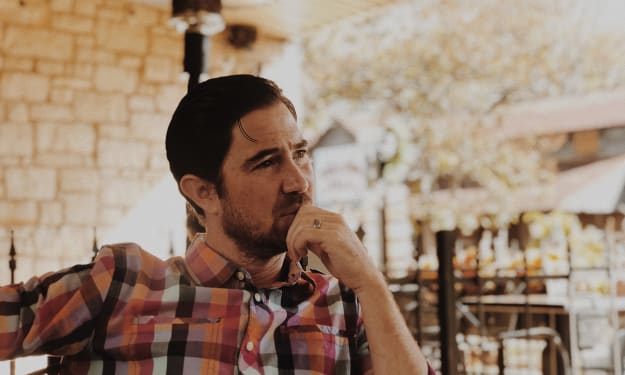
It’s well known that children begin to basically talk at around 12 months on average. That’s when a child generally has the mental development, cognitive skills, and has heard enough verbal communication around them to be able to do so. I myself began to talk at around that age. However, it didn’t feel quite as much of a sudden milestone for me as learning to walk did.
From the very beginning of my life, I would hear words and conversation around me, even though I had no idea at first as to what the people were saying. However, words that I heard still remained in my mind, despite me not being able to say or understand them until years later. For example, on my first Christmas (when I was 14 days old) people were saying “Merry Christmas” and “Santa’s been” to me.
But it took until my third Christmas to finally realise what those words actually meant. I would compare that experience to hearing unfamiliar and tongue-twisting words as an adult (that I have to hear and repeat a few times to get my mind and mouth around). The main differences, of course, are that very young children have less set vocabulary, experience, and mental development than adults and older children do.
As mentioned before, learning to talk was different from learning to walk. I didn’t just get a sudden desire to form words. From the very beginning of my life, I was fascinated by how people could communicate their desires and emotions with each other. Talking was something that I began practicing almost as soon as I was out of the womb.
Before the age of one, I would practice making vocal sounds. The first time I realised I could make vocal sounds was when I cried (and that was very early on). I began with basic sounds, and because I spent so much of my time doing that, I soon realised that I could make various sounds by moving my tongue and mouth differently. I’d compare that to how I may fidget with something now as stimulation, and the more I do it the more I find myself subconsciously doing trickier things with that object.
As the months went by I could make more vocal sounds, and therefore verbal words that I heard around me weren’t sounding quite as unfamiliar as they did at the very beginning. Yet at the same time, many things were holding me back then. Firstly I didn’t know many words and wasn’t able to pick them up easily when I heard people conversing. But most importantly, due to my mental development, I had a lot of difficulty with grouping vocal sounds together to make words.
At that time my sequential memory was very limited, and I had to have a thorough understanding of a word’s vocal sequence long before I could verbalise it. I didn’t have much hope with picking up vocabulary from adult conversations. The sentences used were too complex and they were talking at a speed of which was way too fast for me. But I did pick up on a fair few words that mum would say to me as a baby. The very first words that I managed to say were “mummy” and “hungry”, even though I didn’t understand the definition of being hungry until a little later.
Once I became familiar with pronouncing those words, the amount of other words I could say grew ever larger. I recognised more words in sentences (and therefore learnt how to use them myself) as I gained a larger vocabulary.
That whole process didn’t end when I was a baby or toddler. Nor has it stopped now as a nearly 28-year-old woman. I continue to learn new words and sentence structuring whenever I’m having a conversation, attending a class, using social media, or reading any piece of material (be it a book, article or anything else).
Learning a new language is very difficult to do as an adult. Yet it’s also difficult to do as a young child. In that case, it’s very hard to rule out the possibility of this being because communication and vocal skills are something adults take for granted by that time. Personally, I don’t find learning to articulate words as exciting as I found it to be as a baby and a toddler. The novelty of vocalising and communicating has worn off now.
About the Creator
Rebecca Sharrock
I'm an autistic person who is making a career from writing, public speaking and advocacy work.






Comments
There are no comments for this story
Be the first to respond and start the conversation.